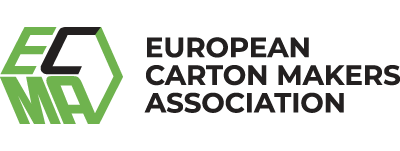Feedback on the roadmap on the impact assessment on proposal for a regulation on deforestation and forest degradation – reducing the impact of products placed on the EU markets
It should be stressed out that these products come outside the forest sector and besides the consumption patterns, it would be essential to solve initial problems behind deforestation and forest degradation resulting from challenges related to e.g. local governance. Moreover, livelihoods of local people should be supported in an appropriated manner.
While European pulp, paper and board production does not contribute to deforestation, the association between deforestation and the use of paper continues to throw shade on the reputation and image of sustainably acting producers in Europe. It should be reiterated that forests in Europe have been growing alongside the increased use of wood from them thanks to sustainable forest management and efficient use of wood by the forest-based industries.
The European paper and board industries are committed to use wood that has been legally harvested and comes from responsibly managed forests. This is reflected in the reality: 92% of the wood consumed by the European paper industry is from Europe, the rest being imported mainly from Russia and Belarus. In 2018, 74% of the wood supply to the paper industry is from forests certified either FSC or PEFC. 90% of the external purchased pulp is certified.
Therefore, legally sourced, certified primary raw materials from sustainably managed forests are prerequisite for the European paper and board industries. We agree that the global deforestation is a big threat due to increase in CO2 emissions and the negative impacts it has on biodiversity. Promotion of sustainable forest management, in which European paper and board industry is firmly committed to, should play a key role across the world in enhancing the condition of ecosystems and assuring the delivery of raw materials and non-wood forest products as well as ecosystem services such as e.g. habitats, clean air, water purification and erosion prevention.
European paper and board industries are global actors and we emphasise the importance of trade agreements, ensuring fluent functioning of trade flows. At the same time, we strongly support the “sustainable development chapter” of the EU-Mercosur free trade agreement, and in particular, the elements related to the ‘sustainable management and conservation of forests’.
Sustainability of the forest-based raw materials in the EU is ensured via the national legislations and voluntary systems in place. There have been significant initiatives on forest products and their legal and sustainable sourcing, such as FLEGT, private sector initiatives and the EU Timber Regulation.
Existing regulatory and market-based voluntary tools have to be acknowledged when analysing different options for measures such as risk-based approaches to be taken when promoting deforestation free value chains. We have had a long-standing request to expand the scope of the EU Timber Regulation to printed products and wishes that the fitness-check of the regulation would lead to meeting the request. In addition, the recast of the Renewable Energy Directive includes a prominent system to minimise the risk of using unsustainable forest biomass while respecting the subsidiarity principle.
We would like to reiterate the importance of using tools that do not lead to unintended impacts on and administrative burden for home grown raw materials with minimal risk of illegal logging, deforestation or forest degradation. Raw material availability from sustainably managed forest in Europe forms a base for investment decisions in Europe.
Information about the 2050 vision of the European forest-based industries vision to a climate neutral Europe can be found at http://www.cepi.org/system/files/public/documents/FBI%20vision%202050__18112019.pdf and the Cepi CEO declaration at http://www.cepi.org/system/files/public/CEPI_Press%20Release%20CEO%20Initiative%20Climate_19%20November %202019.pdf
Download the whole document here.
For more information, please contact:
Ulrich Leberle
Raw Materials Director at Cepi
ulrich.leberle@cepi.org
